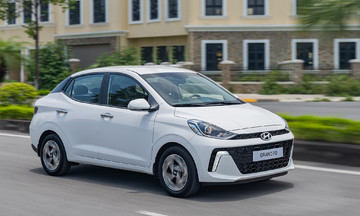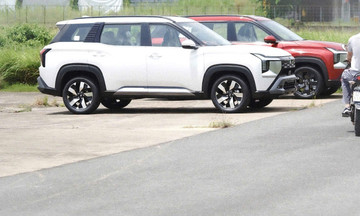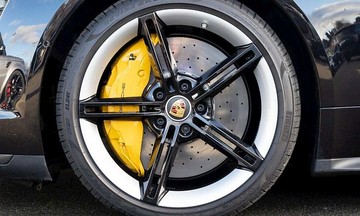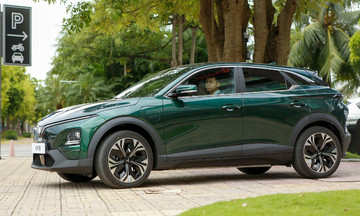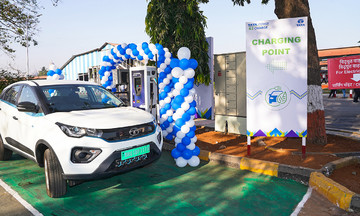Italy has introduced a new decree to crack down on littering from vehicles. Decree number 116, effective from 9/8, stipulates that drivers no longer need to be caught in the act. Clear images of the vehicle's license plate captured by cameras are sufficient for issuing fines. This measure aims to protect the environment and road safety, with fines reaching up to 18,000 euros, license suspension, and, in the most serious cases, arrest.
Previously, penalizing littering from cars required direct intervention from traffic police, often including vehicle confiscation. However, thanks to amendments to Article 15 of the traffic code, police can now use images from any video surveillance system, including private ones, both inside and outside residential areas. Once the license plate is identified, the vehicle owner is traced through the transport department's database and receives a penalty notice.
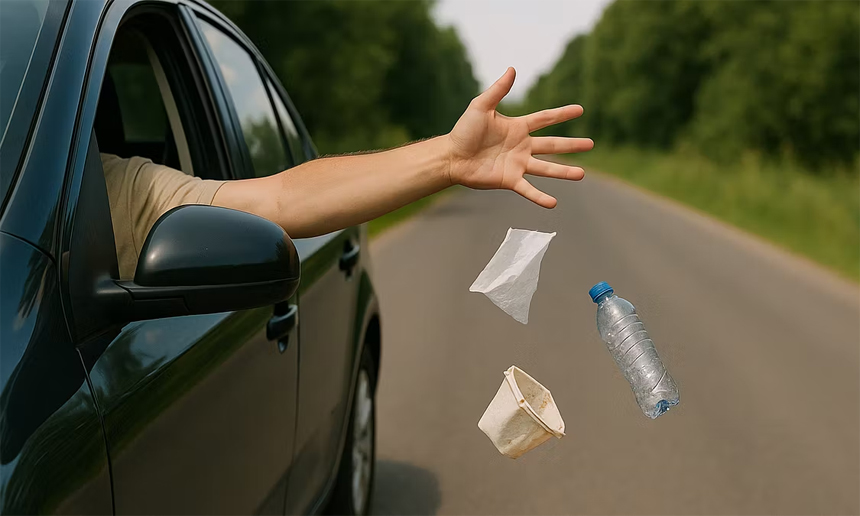 |
Throwing trash from cars could result in jail time in Italy. Photo: TGcom24 |
Throwing trash from cars could result in jail time in Italy. Photo: TGcom24
Luigi Altamura, local police commander in Verona, told Corriere della Sera, "It's not just a matter of urban aesthetics: litter can hit motorcyclists or force them to brake suddenly, causing accidents,".
Decree 116/2025 distinguishes between non-hazardous and hazardous waste. For cigarette butts or tissues, the fine can reach up to 1,188 euros. For cans, bottles, or plastic bags, in addition to fines ranging from 1,500 to 18,000 euros, the incident is reported to the Public Prosecutor's Office. If waste is dumped in sensitive areas like rivers or protected zones, or poses a specific danger to people or the environment, offenders face arrest with penalties from six months to 5.5 years, and up to seven years in the most severe cases.
Lawmakers have introduced harsher penalties for actions that exacerbate environmental impact. Discarding waste near waterways, in nature reserves, or in already polluted areas risks immediate arrest.
Beyond fines and imprisonment, the decree introduces additional stringent penalties. License suspension, up to six months, may be applied in cases involving criminal offenses. If the offense is committed using a company vehicle, the vehicle will be confiscated unless it belongs to an unrelated party.
In cases involving hazardous waste, prison sentences range from one to five years, increasing to six years in serious cases. Company owners can be held accountable for lack of supervision, facing sentences of up to 5.5 years.
Besides the environmental impact, throwing trash out of car windows poses safety risks. An object could strike other vehicles or cause unexpected swerves, leading to accidents. The use of cameras as "invisible guards" and the stricter penalties aim to significantly reduce these incidents. "The cameras operate 24/7, even on holidays," Altamura concluded.
My Anh (TGcom24)



